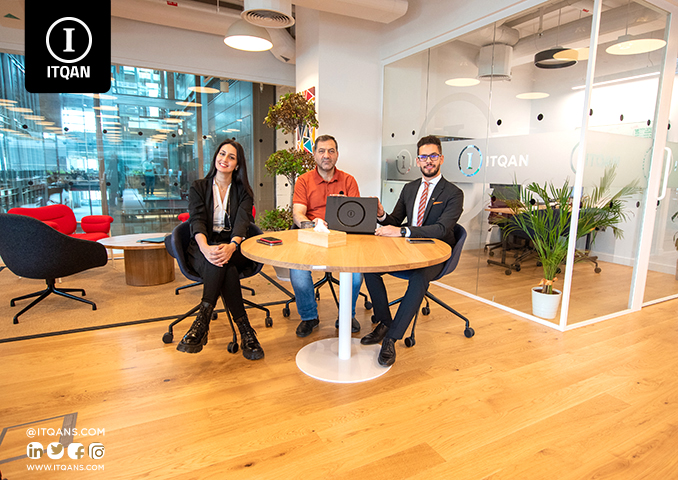What are the laws and regulations of the UAE for investors? The United Arab Emirates is one of the most prominent global investment destinations, as it is characterized by providing an encouraging and attractive business environment for investors from all over the world. Through a set of laws and regulations regulating investment, the UAE seeks to achieve a balance between facilitating economic activities and guaranteeing the rights of investors and local partners. These regulations are flexible, which enhances growth and investment opportunities in various economic sectors such as trade, real estate, industry, and services. In addition, the UAE provides many advantages such as tax exemptions and free zones, making it a preferred destination for foreign and local investors alike. Through this article, we will review some details about the laws and regulations of the UAE for investors .

جدول المحتوى
ToggleUAE Laws and Regulations for Investors
The United Arab Emirates is one of the world’s leading investment destinations thanks to its advanced laws and regulations that aim to attract and facilitate foreign and local investments. Here are the most prominent laws and regulations governing investment in the Emirates:
- Companies Law: The UAE Companies Law regulates the establishment and management of companies, and sets out the legal frameworks for different types of companies such as limited liability companies and public joint stock companies. The law requires companies to submit annual financial reports and comply with oversight and auditing requirements.
- Free Zones Law: The UAE offers many free zones that enjoy special laws and privileges, such as exemption from taxes and customs duties. This law makes it easier for investors to establish their companies without the need for a local partner in some areas.
- Foreign Direct Investment Law: This law aims to encourage foreign direct investments by providing a stimulating regulatory environment, and includes providing incentives and facilities to foreign investors such as foreign ownership of up to 100% in some sectors.
- Tax Law: This law includes corporate tax and value added tax, and determines how taxes are calculated and collected on business activities. In some free zones in Dubai , companies are exempt from taxes.
- Labor Law: This law regulates the rights and duties of workers and employers, and includes laws related to salaries, working hours, vacations, and working conditions. It aims to provide a fair and equitable work environment.
- Real Estate Law: This law regulates real estate ownership rights and specifies the procedures for buying, selling and registering real estate. It includes laws specific to apartments, residential and commercial buildings.
- Consumer Protection Law: It aims to protect the rights of consumers by ensuring the quality of products and services, and preventing unfair commercial practices.
- Through these laws, the UAE seeks to provide a transparent and stable investment environment, which enhances investor confidence and encourages business growth.
Investing in the UAE
The UAE enjoys a distinguished investment environment thanks to a set of laws and regulations that aim to attract and promote local and foreign investment. The UAE investment system includes the Companies Law, which regulates the establishment and management of companies, providing a clear legal framework for operating businesses. In free zones, investors are granted special privileges such as tax and customs exemptions, which enhances the attraction of investments. The Foreign Direct Investment Law is one of the most prominent laws that allows foreign investors to own companies up to 100% in specific sectors, which contributes to stimulating foreign investment. In addition, the Tax Law regulates how taxes are collected from companies and individuals, and includes tax exemptions specific to free zones. The Labor Law addresses the rights and duties of workers and employers, ensuring a fair and equitable work environment. As for the Real Estate Law, it regulates the processes of buying, selling, and registering real estate, allowing investors to own and invest in real estate in an organized manner. The Consumer Protection Law also contributes to ensuring the quality of products and services and protecting the rights of consumers. These laws and regulations contribute to creating a safe and transparent investment environment, making the UAE an attractive destination for global investment.
Investment areas in Dubai
Dubai, as a global economic hub, offers a wide range of investment areas that attract investors from all over the world. The following are the most prominent investment areas in the Emirates :
- Real Estate: Dubai’s real estate market is one of the most attractive for investors, with investments in residential apartments, villas, commercial offices, and hotels. With mega projects such as Burj Khalifa and the Palm Islands, Dubai offers diverse investment opportunities in the real estate sector.
- Financial and Banking Sector: Dubai is an important financial center in the Middle East, offering opportunities for investment in banks, insurance companies, and investment services. This includes financial markets and stock exchanges such as the Dubai Financial Market.
- Technology and Innovation: Dubai is investing heavily in innovation and technology, including artificial intelligence, fintech, and cloud computing. Dubai offers incentives to investors in these sectors through specialized free zones such as Dubai Silicon Oasis.
- Tourism and Hospitality: Dubai continues to strengthen its position as a global tourism destination, creating investment opportunities in hotels, resorts, and tourism activities. This includes developing tourism facilities and the visitor experience.
- Trade and Retail: Dubai remains a major trade hub in the region, with investment opportunities in retail, e-commerce, and logistics. This includes the development of malls and markets.
- Industry and Manufacturing: Dubai offers investment opportunities in manufacturing and manufacturing industries, including food, pharmaceuticals, and high technology. Industrial free zones such as Jebel Ali offer opportunities for companies looking to produce and export products.
- Renewable Energy: Dubai seeks to promote environmental sustainability by investing in renewable energy, including solar and wind power. This includes projects such as the Mohammed bin Rashid Al Maktoum Solar Park. Dubai continues to develop its investment environment, making it an attractive destination for a variety of investments across various sectors.
Investment conditions in the Emirates
Investing in Dubai requires compliance with a number of conditions and regulations to ensure compliance with legal and regulatory standards. Here are the most important conditions for investing in Dubai:
- Company Registration: Investors must register their company with the Department of Economic Development (DED) or in one of the approved free zones. Registration requires submitting documents such as a business plan, personal ID, and a lease contract.
- Obtaining a commercial license: Investors must obtain the appropriate commercial license according to the type of business activity. The license can be commercial, industrial, or service, depending on the nature of the business.
- Compliance with local laws: Investors must comply with Dubai’s labor, tax, and consumer protection laws. This includes compliance with health, safety, and environmental laws.
- Securing Capital: Some investment activities require a minimum amount of capital, which varies depending on the type of business and investment area. Investors must provide evidence of the availability of the required capital.
- Compliance with free zone requirements: If the investment is made in a free zone, investors must follow the requirements of those zones, such as foreign ownership requirements and tax benefits.
- Special Licenses and Approvals: Some investment activities may require additional licenses or approvals from relevant government agencies or regulatory bodies.
- Maintaining financial records: Companies are required to maintain accurate financial records and comply with auditing and annual financial reporting requirements.
- Employing local talent: There may be requirements to employ a certain percentage of local talent or provide training programs for UAE nationals, especially in sectors of national importance. Adhering to these conditions helps ensure the success of the investment and enhances business stability in Dubai.
The importance of investing in the Emirates for investors
Investing in the UAE is of great importance to investors on several levels, making it an attractive option on the regional and international levels. Here are the most important aspects of investing in the UAE:
- Encouraging business environment: The UAE offers a sophisticated investment environment, with world-class infrastructure and modern facilities that support business. Free zones are one of the most prominent investment advantages, as they allow investors to enjoy tax exemptions and trade facilities.
- Political and economic stability: The UAE enjoys political and economic stability, which provides a safe environment for investment. This stability enhances investor confidence and reduces the risks associated with investment.
- Legal and regulatory facilitations: The UAE offers a flexible legal and regulatory framework to support investment activities. This includes laws that protect the rights of investors and provide incentives such as up to 100% foreign ownership in some sectors and free zones.
- Strategic Location: The UAE is located in a strategic geographical location linking the East and the West, making it an ideal gateway for trade and distribution to the markets of the Middle East, Africa, and Asia.
- Diversified Economy: The UAE has a diversified economy that includes key sectors such as oil and gas, as well as other areas such as tourism, real estate, and financial services. This provides investors with a wide range of opportunities in various fields.
- Tax incentives and exemptions: The UAE offers attractive tax incentives, including tax exemptions for investors in free zones, which enhances project profitability and reduces costs.
- Government Support: The UAE government provides significant support to investors, by facilitating licensing procedures, providing advice, and providing the necessary information about investment opportunities.
- Skilled Workforce: The UAE has a qualified and diverse workforce, which helps meet the needs of businesses for diverse skills and expertise. These factors make the UAE a preferred destination for investors, providing them with opportunities for growth and success in a supportive and stable business environment.
At the end of our article on the laws and regulations of the UAE for investors, it is clear that the UAE has established an advanced legal and regulatory framework that aims to enhance the investment environment and attract capital from all over the world. By providing flexible laws and numerous benefits such as tax exemptions, free zones, and a facilitation system for procedures, the UAE ensures a balance between facilitating economic activities and protecting the rights of investors. In addition, political and economic stability, advanced legislation, and registration facilities provide strong support that enhances investor confidence and motivates them to invest. Thanks to these policies and benefits, the UAE continues to affirm its position as a leading investment destination, contributing to the growth of the national economy, attracting global investments, and enhancing opportunities for success and innovation in various sectors.
Frequently Asked Questions about UAE Laws and Regulations for Investors
Can a foreign investor own 100% of a company in the UAE?
Yes, in some free zones and in some economic sectors, foreign investors can own 100% of companies without the need for a local partner. However, there may be restrictions in some sectors outside the free zones.
What are free zones and what benefits do they offer?
Free zones are special economic zones that offer incentives such as tax and customs exemptions, full foreign ownership privileges, and simplified registration procedures. Examples of free zones include Jebel Ali Free Zone, Dubai Silicon Oasis, and Knowledge Zone.
What are the basic steps to obtain a commercial license?
The steps include: choosing a company name, specifying the business activity, submitting registration documents, obtaining the necessary approvals from the relevant authorities, opening a bank account and submitting proof of capital.



 100vw, 678px srcset=)














